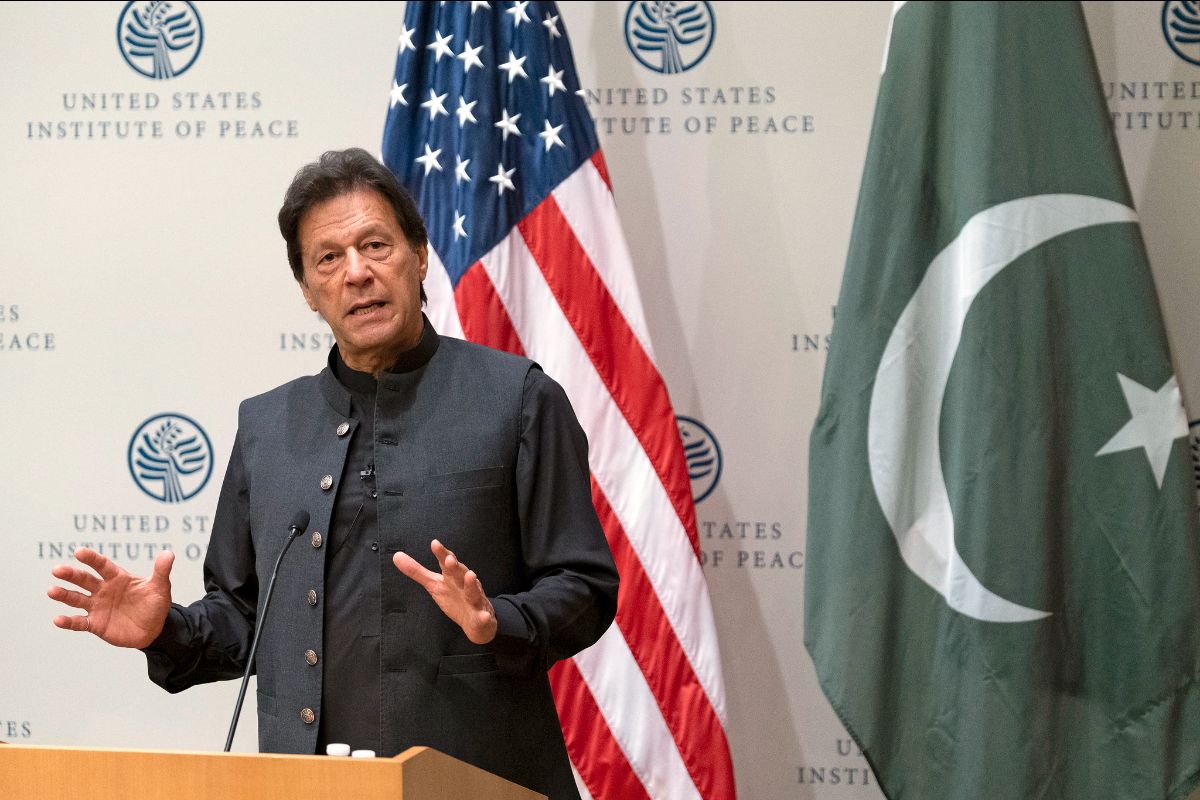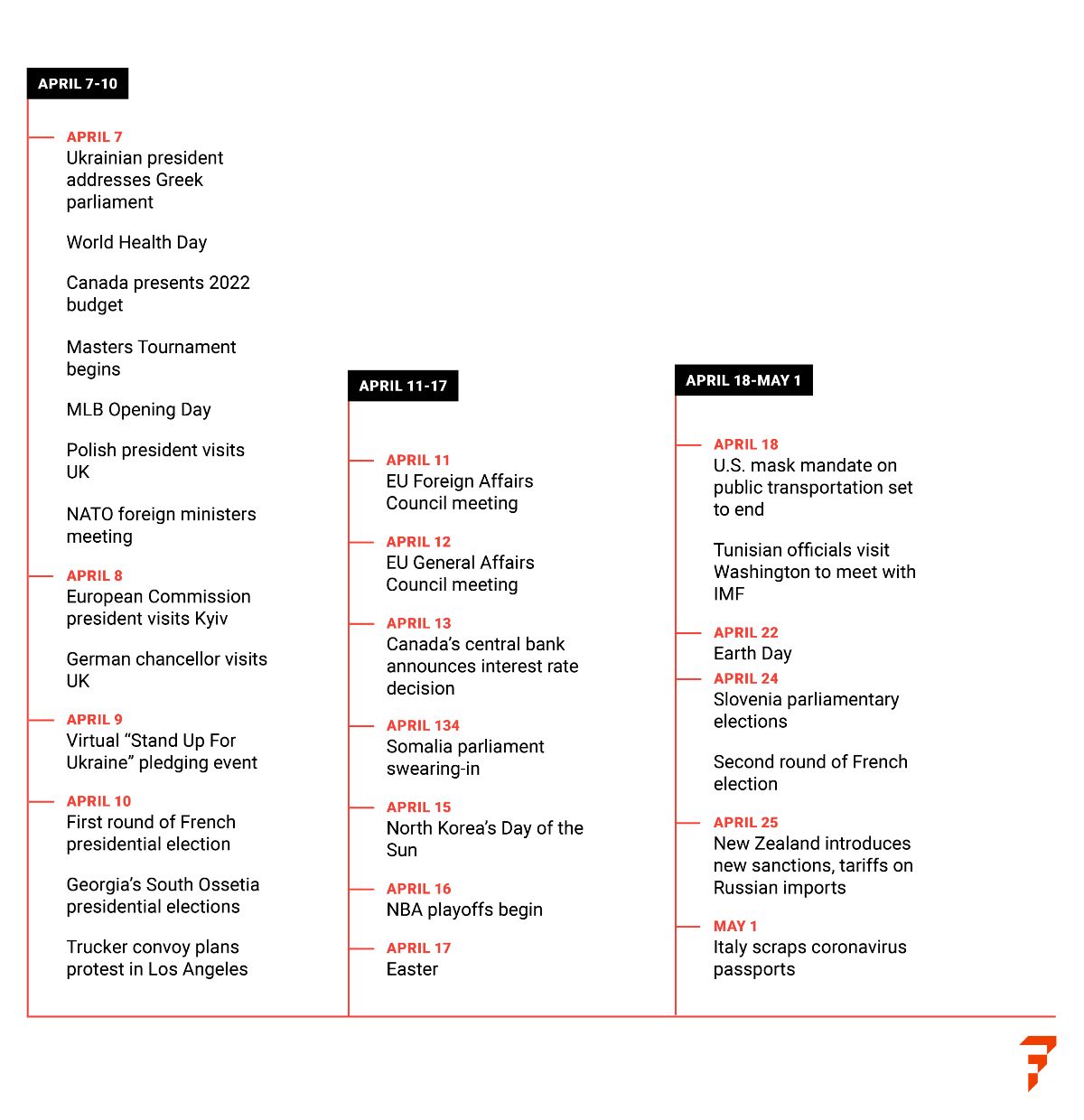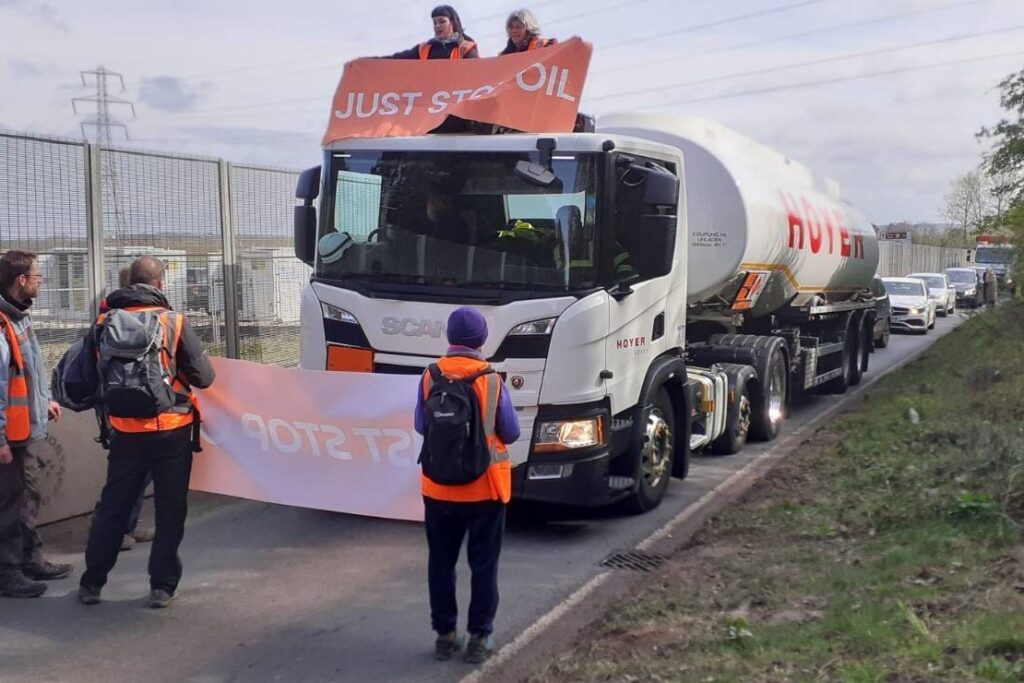Welcome to Factal Forecast, a look at the week’s biggest stories from the editors at Factal. We publish our forward-looking note each Thursday to help you get a jump-start on the week ahead. If you like what you see, you can subscribe for free.
A Look Ahead
April 9
Extinction Rebellion begins daily protests in London
Extinction Rebellion’s climate activists plan to stage daily protests in England’s capital beginning Saturday, starting in London’s Hyde Park.
What’s happened so far
The environmental activist group announced daily protests in London between April 9 and April 17 and at least three additional actions on weekends in late April and May. This follows a recent partnership with youth climate group Just Stop Oil, whose activists blocked at least 10 refineries in London, Birmingham and Southampton last week. Police arrested dozens of demonstrators following last week’s blockades.
The impact
Extinction Rebellion says the goal of the protests and the joint action with Just Stop Oil is to get the British government to stop all new fossil fuel investments and to cause enough disruption “to create a tipping point moment.” The upcoming actions will be focused economic disruption, mainly through roadblocks in central London. Extinction Rebellion claims this campaign may be their largest yet.
April 9
Russia to resume flights with 52 “friendly” countries
Russian Prime Minister Mikhail Mishustin announced the country will lift coronavirus-related travel restrictions on Saturday for several countries as Russia tries to revive its economy from international sanctions.
What’s happened so far
Earlier this year, Russia was beginning to gradually lift tough travel restrictions introduced in March 2020, but the invasion of Ukraine in late February and the sanctions that followed led Russia to close its airspace to several countries. Meanwhile, such sanctions have also led international companies to end contracts with Russian airlines.
The impact
Russia says it will resume travel with a selection of “friendly” countries that did not take part in the sanctions imposed over the attack on Ukraine. The list of 52 countries includes China, Pakistan and South Africa. Russia is hoping to bring in some revenue after being severely hit by the international response to the invasion, but it remains to be seen if airlines will resume operations and if national airlines will be able to operate despite a freeze on sale of aircraft parts or maintenance services to the country.
April 9
“Stand Up For Ukraine” event in Warsaw
European Commission President Ursula von der Leyen has convened a pledging event in Warsaw, Poland, on Saturday to raise funding for Ukraine’s internally displaced and refugee population.
What’s happened so far
Approximately 6.5 million people have been internally displaced in Ukraine since the Russian invasion began Feb. 24, with the European Union housing more than 3.8 million refugees. Poland has served as an important humanitarian hub for Ukrainians fleeing through the Western front, with roughly 2.5 million refugees currently residing in the country. “Stand Up for Ukraine” aims to mobilize governments and institutions to raise humanitarian funding needed to meet the growing demands of a rapidly growing refugee crisis.
The impact
Dozens of musicians, athletes and other entertainers will appear as part of the virtual performance to rally people on social media to support the cause. Several world leaders pledged to attend the event, including Canadian Prime Minister Justin Trudeau — who will participate remotely — and Poland’s President Andrzej Duda. Von der Leyen is expected to travel to Kyiv with EU foreign policy chief Josep Borrell to meet with Ukrainian President Zelenskyy and continue talks on EU sanctions against Russia.
April 10
South Ossetian presidential elections
South Ossetia, a largely unrecognized Russia-backed breakaway state carved out from Georgia, will hold presidential elections on Sunday, just more than a week after the current president said the republic will take legal steps to join Russia.
What’s happened so far
South Ossetia, like most other post-Soviet conflicts, can trace its contemporary roots to the fall of the empire. Tensions escalated steadily until 2008, when Russia launched a full invasion following a series of provocations, expelling Georgians from South Ossetia and recognizing its independence. Elections in South Ossetia are not considered free and fair, with Russia heavily pre-screening candidates. Last week, Incumbent President Anatoly Bibilov announced the breakaway region would take steps to be annexed into Russia. Moscow, meanwhile, said they had not taken legal measures to annex the region.
The impact
Bibilov will stand for re-election in this vote. Despite rebuffing the overtures about annexation from South Ossetia, the Kremlin said it respects the will of the South Ossetian people. The move comes during a tense period in the caucasus following Russia’s invasion of Ukraine. Georgia has painstakingly moved not to provoke Russia, both over Ukraine and now over South Ossetia, making it clear that Tbilisi will not use force to respond to the possible referendum.
April 10
First round of French presidential election
French voters will go to the polls Sunday for the first round of the country’s 2022 presidential election and will be able to choose one of 12 candidates, including President Emmanuel Macron, who is seeking re-election.
What’s happened so far
The Constitution of France limits the president to two terms. Macron faces stiff competition from far-right politicians Marine Le Pen, of the National Rally party, and Eric Zemmour, founder of the Reconquest party, but both risk splitting the right-wing vote. He also faces challenges from The Republicans candidate Valérie Pécresse and left-wing Jean-Luc Mélenchon, among others. Polls had shown Macron with a comfortable lead, likely influenced by his tough stance on Russia’s invasion of Ukraine, but have since narrowed, showing a tighter race than expected.
The impact
If none of the candidates win a majority of the vote in the first round — none of the polls show any candidate coming close to that — then the race will go to a runoff to be held on April 24. If the polls are correct and both Le Pen and Macron advance to a second round, it would be a rematch of the 2017 election, with Macron hoping to carry off a repeat of his victory.
April 10
Trucker convoy plans protest in Los Angeles
After spending weeks demonstrating in Washington, D.C., a caravan of truckers is heading toward Los Angeles for more protests planned for Sunday against newly proposed anti-coronavirus laws in California.
What’s happened so far
Inspired by “Freedom Convoy” protests that paralyzed Ottawa, Canada, earlier this year, several groups of truckers set off in late February for Washington, D.C., to protest against the United States’ federal emergency declaration and vaccine mandates. The convoy has not picked up much momentum aside from disrupting traffic in the D.C. metro area for weeks, with none of their demands met.
The impact
The movement’s organizers say approximately 100 vehicles are returning to Los Angeles and are hoping to pick up more participants along the way. Demonstrations could exacerbate traffic in Southern California the same way they did in the capital. Organizers said they plan to return to Washington, but did not specify when.
April 13
Canada’s central bank announces interest rate decision
The Bank of Canada, in its meeting Wednesday, are expected to increase the interest rate by 0.5 percent to 1 percent, the largest increase since 2000.
What’s happened so far
Prior to 2022, Canada’s central bank kept interest rates at record lows, decreasing the cost of borrowing and allowing more money to flow through the economy. With coronavirus restrictions eased, the economy is growing substantially again. Earlier this month, the central bank’s governor raised the interest rate to 0.5 percent, with inflation rising in March by 5.7 percent, and further price increases expected.
The impact
With the general expectation of further inflation and forecasts of the interest rate rising to 3 percent in 2022, this will be the quickest economic tightening Canada has seen in three decades. Interest rate hikes will take time to hit the consumer, but companies are struggling to meet demand, unemployment is low, and the war in Ukraine and future expectations show those woes deepening financially. Tightening the economy further will mean consumers spend less but save more, allowing the economy to breathe and see if prices decrease or stay stable.
April 14
Somalia parliament swearing-in
Amid threats from Al-Shabaab, Somalia is scheduled to swear in members of Parliament on Thursday, ending a series of long delays that left the country without a functioning legislative body for months.
What’s happened so far
In 2012, Somali politicians established a bicameral parliament that would directly elect the country’s president. The process has been rife with corruption since then, with some experts calling the 2017 election among the most fraudulent in the country’s history. The next round of elections were delayed for several reasons, including the coronavirus pandemic, and only 30 representatives had been elected by December 2021. However, threats of missing payments from the United Nations and visa bans by the United States have led the process forward.
The impact
Somalia has been attempting to stabilize its democracy during its ongoing decades-long civil war. Incumbent President Mohamed Abdullahi Mohamed has stayed in office more than a year longer than expected, though Thursday’s swearing-in should finally lead to elections. Amid parliament’s preparations for a new president, Somali intelligence warns Al-Shabaab is planning to attack the country’s president and prime minister, though details are sparse.
What Else Matters

Unrest over economic crisis in Sri Lanka
Scores of anti-government protesters (members’ link) have taken to the streets of Sri Lanka since March 31 after weeks of upheaval over the country’s economic and energy crises, as well as growing resentment over the rule of President Gotabaya Rajapaksa. Despite demands for his resignation, the president and his brother, former president and current Prime Minister Mahinda Rajapaksa, remain in their positions. Instead the entire cabinet, which included several members of the Rajapaksa family, resigned and the president proposed a unity government.
Watch for: With the main demand of Gotabaya’s resignation still unmet, protests are expected to continue despite a short-lived social media ban and a now-revoked state of emergency that gave security forces sweeping powers of arrest. On the political front, the Rajapaksa government has become a minority in parliament as dozens of lawmakers left the ruling coalition while several parties demanded a caretaker government be formed. Meanwhile, the Sri Lankan rupee depreciated further, billions of dollars in debt payments are due soon, and the government is running out of foreign currency to import essential medicine, food and fuel.
Pakistan political crisis
Pakistani Prime Minister Imran Khan and opposing lawmakers are facing off in front of the country’s supreme court over whether he should be allowed to remain in office. Khan dissolved parliament on April 3 after it appeared the opposition had enough votes to oust him, claiming the effort constituted a conspiracy against him involving the United States because of his policy decisions that generally lean in favor of China and Russia.
Watch for: Pakistan’s highest court is hearing both sides this week, though it hasn’t indicated a timeframe for reaching a decision on whether Khan’s actions violated the constitution. A ruling in favor of the opposition may reconstitute parliament and allow for the no-confidence vote against Khan to proceed, while one in favor of the prime minister would pave the way for new elections. The military, which has overthrown multiple democratically-elected governments over the past eight decades, has yet to take a public position, while police have locked down the capital Islamabad amid calls by Khan for his supporters to stage protests.
Extended Outlook
What’s on our radar in the coming weeks…

Thanks for reading! If you the Factal Forecast in your email inbox, you can sign up for free.
What is Factal?
Trusted by many of the world’s largest companies and nearly 300 humanitarian NGOs, Factal is a risk intelligence and collaboration platform that brings clarity to an increasingly noisy and uncertain world.
Powered by a hybrid of advanced AI and experienced journalists, Factal detects early signals, verifies critical details and assesses the potential impact at the speed of social media. From physical incidents and brand mentions to geopolitical developments, Factal offers the most trusted, real-time risk intelligence on the market.
Factal is also home to the largest security and safety collaboration network in the private sector. Members securely share information with other members in proximity to the same incident, both on Factal.com and the Factal app.
Learn more at Factal.com, and we’d love to hear from you.

